Project Partners

RESIA
The RESIA (Réseau Education Solidarité Internationale Armor), based in Saint-Brieuc, Côtes d'Armor, France, has worked for over 30 years to foster solidarity between groups in France and those in Africa, South America, Asia, and Eastern Europe. Its mission is to promote global citizenship and international solidarity through education and information.
RESIA is a network of around 30 associations dedicated to international solidarity, human rights, and environmental protection. It supports young people developing solidarity or mobility projects outside Europe and has hosted a European Solidarity Corps volunteer annually since 2019. RESIA also runs workshops in schools to raise awareness of global solidarity, world cultures, and sustainable development.
Every year, RESIA coordinates two festivals:
- ALIMENTERRE Festival (October 15 - November 30) focuses on sustainable food, offering a selection of eight international documentaries to drive public awareness and inspire action.
- Festival of Solidarities (Festisol), held in the last two weeks of November, is an international event promoting solidarity. In Saint-Brieuc, RESIA, alongside the local government, organizes community activities to inspire citizens of all ages to take action for a fairer, more united world.
RESIA partners with the local Social and Solidarity Economy hub, offers educational tools (exhibitions, games, films), and is accredited by Youth and Popular Education.

Lycée Jean Moulin
Jean Moulin Vocational High School in Brittany, west of Saint-Brieuc, serves around 650 students across two sections: National Education (24 classes) and Agricultural Education (6 classes). The school offers training in Healthcare and Services, Clients and Business, and Fashion and Clothing from lower secondary to BTS levels. With accommodations for 226 students, the school supports a diverse student body, including those with disabilities, social challenges, or language barriers.
Sustainability initiatives are central to Jean Moulin’s mission:
- Food Waste Reduction: The cafeteria uses a self-service model to minimize waste, supported by eco-delegates, sorting tables, and awareness campaigns.
- Circular Economy and Local Sourcing: The school sources 40% of cafeteria food locally and organically, composts green waste, and promotes waste management with student participation.
- Biodiversity: Managed green spaces include beehives, insect hotels, and a Zero Pesticide label since 2016. The school collaborates with the League for Bird Protection (LPO) to support local biodiversity.
These projects, supported by both the National Education and Agriculture Ministries, foster citizenship and environmental responsibility, bringing students and staff together around sustainable development goals. These initiatives also encourage community involvement and environmental awareness throughout the region.
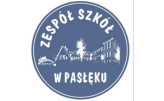
Zespol Szkol w Pasleku
The Pasłęk School Complex includes a general high school, a vocational school, and a technical school. The general high school offers programs in polytechnic studies, biology-medicine, linguistics-journalism, and sports. The vocational school prepares students for careers in hospitality, logistics, and advertising, while the technical school focuses on training in sales, hairdressing, and carpentry.
With 22 classes, the school serves 602 students aged 15 to 19 from Pasłęk and nearby villages within 30 km. Many students come from economically challenged backgrounds, as the area has a high unemployment rate, especially in rural parts. Among the student body, some face social challenges or health issues, and they are supported by a dedicated staff of 51 teachers and 15 administrative and support personnel.
The school’s mission centers on comprehensive educational and professional development tailored to meet both student and community needs. Programs emphasize the link between subject knowledge, essential skill-building, and the practical requirements of young learners. The school aims to create a supportive, multidimensional environment that prioritizes vocational training, addressing both academic and professional growth for future career readiness.
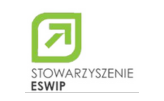
ESWIP
The ESWIP Association is a non-governmental, non-profit organization dedicated to fostering development, civic engagement, volunteering, entrepreneurship, social economy, and corporate social responsibility. It supports collaboration among various organizations—non-profits, public bodies, and private companies—to create public policies, especially in ecology and circular economy.
Operating for over 25 years, ESWIP has managed more than 200 projects nationwide, with a focus on the Warmia and Mazury region. Key initiatives include managing social enterprise incubators and the Regional Center for the European Social Fund in Elbląg and Olsztyn for over 10 years. ESWIP has facilitated professional visits and educational exchanges domestically and abroad, benefitting 3,000 participants in recent years. Results include employment for 200 people at risk of social exclusion, support for 400 social enterprises, establishment of 32 social cooperatives, and creation of 12 NGOs. They also conducted hundreds of training sessions, including the Social Entrepreneurship School and Professional Skill Courses.
Since 2008, ESWIP has managed a government-accredited social economy support center in Elbląg and Ełk, partnering with the Adelfi Association. With 50 full-time staff, ESWIP collaborates with external experts and volunteers, actively engaging in public policy development and community empowerment.
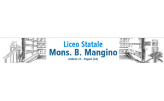
Liceo Scientifico "M.B.Mangino"
Located in Pagani, the M.B. Mangino Lycée offers three tracks: traditional sciences, applied sciences, and linguistics. The school serves 780 students, with a team of 70 teachers and 20 staff, including administrative, technical, and IT support personnel. Positioned in the dense metropolitan area connecting Naples to Salerno, the school is close to key cultural and archaeological sites in Campania.
In recent years, M.B. Mangino Lycée has distinguished itself with an innovative curriculum that combines tradition with a commitment to multiculturalism, inclusion, and European values, focusing on environmental awareness. The school prioritizes sustainable development, aligning with the 2030 Agenda, through programs that span Civic Education, Cross-Disciplinary Skills, and Career Orientation (PCTO). Innovative teaching methodologies, such as Debate and Service Learning, are central to its approach.
In the 2015-16 academic year, the lycée participated in an Erasmus+ project, engaging in a strategic partnership led by a Turkish school, which fostered high-level cultural and educational exchanges. Circular economy concepts are also part of the curriculum, with involvement from environmentally-conscious companies and guidance from experts like Professor Giovanni De Feo of Salerno University, the creator of the “Greenopoli” method.
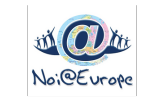
Noi@Europe
Noi@Europe is a youth association established in 2012 in Naples by a young former Europe Direct intern. Its primary mission is to promote European citizenship and international cooperation, serving as a hub for young people to exchange ideas. The association's key goals include supporting youth rights, promoting EU values, increasing youth awareness, encouraging social entrepreneurship, and advocating for human rights and civil liberties.
Noi@Europe contributes to youth development across Naples and surrounding areas through informal and non-formal education. Its activities have fostered a positive view of the EU and international cooperation among Neapolitan youth, making Noi@Europe a recognized partner in decision-making for active citizenship. The association’s programs include youth information services, language workshops for multilingualism, quality-of-life seminars, and non-formal education for multiculturalism. Additionally, Noi@Europe aids institutions and stakeholders with project design and documentation for national and EU program applications.
Staff and members, experts in European law, international studies, political science, and journalism, have experience with mobility programs like Erasmus and Europe Direct Napoli. Since its inception, Noi@Europe has organized workshops in underserved areas to promote international mobility opportunities, partnering with Europe Direct Napoli to host European Voluntary Service participants and mentor volunteers.
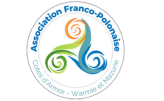
ACAWM
The Franco-Polish Association Côtes d'Armor Warmie and Mazurie (ACAWM), in partnership with the Côtes d'Armor Department Council, aims to promote European fraternity through bilateral projects and decentralized cooperation exchanges between the Warmie-Mazurie region and the Côtes d'Armor department. Established in 1982, the association's mission is to "promote all cooperation activities in all areas between Warmie-Mazurie and Côtes d'Armor."
The association's various projects focus on enhancing European exchanges by showcasing the historical, social, economic, and cultural uniqueness of both regions. It promotes friendly and diverse technical exchanges, particularly in sectors such as agriculture, education, youth, sports, culture, historical memory, and social integration.
ACAWM also works on establishing twinnings with the Franco-Polish Centre in Olsztyn and organizes family exchanges. Additionally, it supports other structures and schools in the Côtes d'Armor in submitting European projects. The association comprises one employee and a network of 50 volunteers, including 16 members on the Board of Directors. This partnership aligns with ACAWM's objectives and its daily commitment to fostering cooperation.

Organisation Volonté et Citoyenneté
Organisation Volonté Citoyenneté is a non-profit NGO based in the southeast of Tunisia, specifically in the Gabès region. The organization focuses on two main areas: human rights and development. Founded by young Tunisians who believe in the vital role of civil society to drive change and shape the future of post-revolution Tunisia, OVC works on several key initiatives:
- Defending and promoting human rights and the concept of citizenship.
- Facilitating educational and cultural events.
- Raising awareness and conducting advocacy campaigns on citizenship, human rights, environmental issues, and promoting transparency while fighting corruption.
- Promoting social entrepreneurship in southern Tunisia.
The OVC team is composed of 11 young graduates, with 7 women, bringing diverse professional backgrounds for a multidisciplinary approach to their work. The Board of Directors includes 7 young members elected for a 2-year term, with 4 women among them.

Lycée Secondaire Cité Elmanara Gabes
Lycée El Manara in Gabès is situated in a highly polluted area due to nearby industrial activities. The school serves about 1,000 students and has a dedicated staff of 129 adults, including teachers and administrative personnel. The lycée works closely with the vocational lycée of Gabès, focusing on ecology and intercultural education to provide quality learning experiences.
Several initiatives have been implemented to raise awareness about waste management. One project involved a jeans collection for a charity that helps individuals with motor disabilities, who create bags and gloves from recycled materials. The student club also constructed reading huts on campus using reclaimed materials, offering activities for students during breaks.
Regular eco-challenges are organized between students and teachers to enhance environmental awareness. Additionally, the lycée serves as a drop-off point for broken computers, with plans to recycle components creatively, possibly turning them into artistic works. In Tunisia, there are no resource recovery centers or established practices for giving items a "second life," but efforts are being made to reduce waste, particularly plastic. The lycée has identified potential partners in Gabès, including a cinema club, Cinéclub, for film production support and the Tunisian Nature Environment Association (ATEN).

